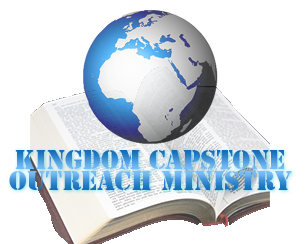You are here
CELEBRATING CHRIST IN THE FEAST OF BOOTHS
“You shall dwell in BOOTHS for seven days. All who are native Israelites shall dwell in booths, that your generations may know that I made the people of Israel dwell in booths when I brought them out of the land of Egypt…” – Leviticus 23: 42-43
There is a great significance attached to CELEBRATING CHRIST in the FEAST of BOOTHS – also known as the Feast of Tabernacles, Shelters, and Ingathering. This is the seventh of the High Holy Days on the Jewish calendar, the biblical festivals God gave to teach Israel about His character and elucidate His plan of salvation. This joyous celebration commemorated the 40-year journey of the Israelites in the wilderness, and reminded of God’s deliverance, protection, provision, and faithfulness. Along with Passover and the Festival of Weeks, Tabernacles is one of the three great pilgrimage feasts recorded in the Bible when all Jewish males were required to appear before the Lord in the Temple in Jerusalem.
Known in Hebrew as Sukkot – booths – this feast was held at the end of the agricultural year. Filled with joy and celebration, the purpose was to thank God for His bounty in the preceding year and pray for a good rainy season in the coming year. It was designed to remember the wilderness sojourn from Egypt to Canaan, when God made His people live in booths. Each Israelite family was expected to construct a booth – a small, temporary shelter with thatched roof of palm fronds and other plants – and live in it for a week (vv.42-43). Annually, the people sacrificed the comforts of their homes in order to commemorate God’s salvation, reminding us of the need to surrender negativities such as self-reliance and selfishness on the route to redemption. We must turn from our idols, carnal comforts, and the transient pleasures of sin.
As a feast instituted by God, the Feast of Booths was never forgotten. It was celebrated by Solomon the day the temple was dedicated (1 Kgs.8:2; 2Chr.8:13). It was observed during Hezekiah’s time (2Chr.31:3; Dt.16:16); and after the return from exile (Ez.3:4; Zech. 14:16,18-19). In keeping with the purpose of the feast, later generations of Jews added a water-pouring ceremony to recall those occasions when the Lord gave Israel water in the wilderness (Exo.17:1-7; Num.20:1-13). Living in booths for a week reminded the people that their success in Canaan was wholly on account of the Lord’s grace. He had brought them to the good land and could just as easily take them out of it. The Israelites must always trust Him alone for their supply.
Agriculturally, this was Israel’s “Thanksgiving,” a joyous harvest festival to celebrate the completion of the agricultural year. Two important ceremonies also took place during this feast. The people carried torches around the temple, illuminating brightness along the walls of the temple to demonstrate that the Messiah would be a light to the Gentiles. Also, the priest would draw water from the pool of Siloam and carry it to the temple where it was poured into a silver basin beside the altar. The priest would call upon the Lord to provide heavenly water in the form of rain for their supply.
Our Lord Jesus not only celebrated this great feast, but applied traditional elements of the celebration – water and light –to His own life and mission to better reveal who He is and what He offers. Jesus attended the Feast of Tabernacles and spoke some amazing words: “On the last day, that great day of the feast, Jesus stood and cried out, saying, “If anyone thirsts, let him come to Me and drink. He who believes in Me, as the Scripture has said, out of his heart will flow rivers of living water” (Jh.7:37-38). The following morning, while the torches were still burning Jesus said, “I am the light of the world. He who follows Me shall not walk in darkness, but have the light of life” (Jh.8:12).
At the heart of this feast is the desire of God to tabernacle with humankind. The feast is a precursor to the ultimate fulfilment when King Jesus sets up His Kingdom and begins to rule on Earth! God always ends on the note of Celebration!
Adetokunbo O. Ilesanmi (Meditations)
- Log in to post comments
Latest Tweets
No tweets to display now.
Our Vision
The vision of KCOM is that:
"the earth shall be filled with the knowledge of the Glory of the Lord as the waters cover the seas" (Habakkuk 2:14).
"But we all, with open face beholding as in a glass the Glory of the Lord, are changed into the same image from glory to glory even as by the Spirit of the Lord" (2 Corinthians 3:18).
Copyright © 2013–2026 Kingdom Capstone Outreach Ministry. | Designed by ZoeWox Technologies
